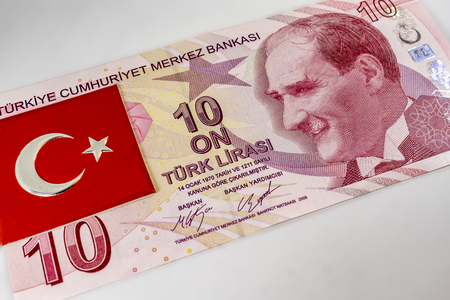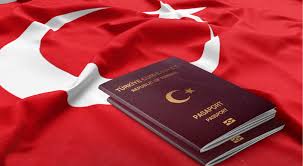Turkey’s real estate market has long been an attractive destination for foreign investors, offering a unique blend of cultural richness, strategic location, and investment potential. One of the key factors influencing this market is the Turkish Lira (TRY), Turkey's national currency.
Fluctuations in the Turkish Lira's value significantly impact property prices and investment strategies for foreign buyers.
In this article, we will analyze how these currency fluctuations affect foreign property investments, discuss the opportunities and risks involved, and provide insights on how investors can navigate the Turkish real estate market in light of these dynamics.
Understanding the Turkish Lira's Fluctuations
Historical Context and Recent Trends
The Turkish Lira has experienced considerable volatility over the past decade, influenced by political events, economic policies, and global market conditions. In recent years, the currency has depreciated significantly against major currencies like the US Dollar (USD) and the Euro (EUR), making Turkish assets, including real estate, more affordable for foreign investors.

Key Factors Influencing the Turkish Lira
Several factors contribute to the fluctuations in the Turkish Lira, including:
- Economic Policies : Monetary policy decisions by the Central Bank of Turkey, such as changes in interest rates, directly impact the value of the Lira. Policies stimulating economic growth or controlling inflation can lead to currency depreciation or appreciation.
- Political Stability : Political events and government stability are crucial in investor confidence and currency strength. Political uncertainty can lead to currency depreciation, while stability bolsters the Lira.
- Global Economic Conditions : Global factors, such as the strength of the US Dollar, commodity prices, and international trade relations, also influence the Lira. For example, increasing global oil prices can pressure the Turkish economy, leading to a weaker Lira.
- Inflation : High inflation rates in Turkey have historically weakened the Lira. When inflation is high, the purchasing power of the Lira decreases, which can lead to further currency depreciation.
The Impact of the Turkish Lira on Property Prices
Currency Depreciation and Property Affordability
One of the most significant impacts of the Turkish Lira’s depreciation is the increased affordability of Turkish real estate for foreign investors. As the value of the Lira declines against stronger currencies like the USD and EUR, the cost of purchasing property in Turkey decreases for those holding foreign currencies.
For example, if the Turkish Lira depreciates by 20% against the US Dollar, a property priced at 1 million TRY would effectively cost 20% less in USD terms. This makes Turkish real estate an attractive investment opportunity, particularly for those looking to maximize their purchasing power.
Increased Demand from Foreign Investors
The depreciation of the Turkish Lira has led to a surge in demand from foreign property buyers. Investors from Europe, the Middle East, and Asia are particularly drawn to Turkey’s real estate market, as they can acquire properties at significantly lower prices than similar markets in Europe or North America. This increased demand has helped stabilize property prices in Turkey, even as the Lira fluctuates.
Impact on Property Prices for Local Buyers
While the depreciation of the Turkish Lira benefits foreign investors, it can have the opposite effect on local buyers. As the Lira weakens, the cost of imported goods and materials rises, leading to higher construction costs. These increased costs are often passed on to buyers through higher property prices, making it more challenging for residents to afford real estate.
Investment Strategies for Foreign Buyers

Timing the Market
One key strategy for foreign investors looking to take advantage of the Turkish Lira’s fluctuations is timing the market. By monitoring the exchange rate between the Lira and their home currency, investors can identify optimal moments to purchase property. For example, when the Lira is low against the USD or EUR, foreign investors can capitalize on favorable exchange rates to buy property at a lower cost.
Diversification
Diversification is another important strategy for mitigating the risks associated with currency fluctuations. Foreign investors may consider spreading their investments across different regions in Turkey or diversifying into various real estate types, such as residential, commercial, and tourism-related properties. This approach can reduce exposure to localized market risks and currency volatility.
Focus on High-Demand Areas
Investing in high-demand areas, such as Istanbul, Bodrum, Antalya, and Izmir, can help foreign buyers maximize their investment returns. These cities attract local and international buyers, ensuring a steady property demand. Additionally, high-demand areas tend to be more resilient to economic fluctuations, providing a safer investment environment.
Long-Term Investment Perspective
Given the volatility of the Turkish Lira, adopting a long-term investment perspective is crucial. Real estate is typically a long-term investment, and while currency fluctuations can impact short-term gains, the long-term appreciation of property values can offset these effects. Investors holding onto their properties for several years can benefit from capital appreciation and rental income, regardless of short-term currency movements.
Rental Income Potential
Foreign investors can also generate rental income from their Turkish properties, which can provide a hedge against currency fluctuations. Rental income is often paid in local currency, and while it may be subject to the same currency risks, it can help cover expenses and provide a steady cash flow. Short-term vacation rentals can be particularly lucrative in high-demand tourist areas, with rental yields often outpacing inflation and currency depreciation.
Risks and Considerations
Currency Risk
The most significant risk for foreign investors in the Turkish real estate market is currency risk. The value of the Turkish Lira can fluctuate significantly, impacting the return on investment when converting profits back to the investor’s home currency. Investors need to be aware of this risk and consider strategies such as currency hedging or holding investments for the long term to mitigate its impact.
Political and Economic Stability
Political and economic stability in Turkey is another important consideration for foreign investors. While Turkey offers a wealth of opportunities, monitoring the political landscape and monetary policies is essential, as these factors can influence the value of the Lira and the overall real estate market.
Inflation and Interest Rates
High inflation and changing interest rates can also impact the profitability of real estate investments in Turkey. Inflation can erode the value of rental income and increase the cost of property maintenance while rising interest rates can affect the affordability of mortgage financing. Investors should consider these factors when planning their investment strategy.
Legal Considerations
Foreign investors must also navigate the legal landscape when purchasing property in Turkey. Working with a reputable real estate agent and legal advisor is crucial to ensure compliance with Turkish property laws and regulations. This includes understanding property ownership rights, tax obligations, and the process for obtaining residency or citizenship through property investment.
Opportunities in the Turkish Real Estate Market

Turkish Citizenship by Investment Program
One of the most attractive opportunities for foreign investors in Turkey is the Turkish Citizenship by Investment program. By purchasing property worth a minimum of $400,000, foreign investors can obtain Turkish citizenship for themselves and their immediate family members. This program has been a significant driver of foreign investment in Turkish real estate, offering residency benefits and the potential for capital appreciation.
For more about: Turkish citizenship And ways to get it 2024
Capital Appreciation in Key Markets
Despite the fluctuations in the Turkish Lira, key real estate markets in Turkey, such as Istanbul, Antalya, and Bodrum, have shown strong capital appreciation over the years. Foreign investors who purchase property in these high-demand areas can benefit from rising property values, especially as Turkey continues to attract international buyers and tourists.
Affordable Property Prices
Turkey offers relatively affordable property prices compared to other prominent real estate markets in Europe and the Middle East. This affordability, combined with the potential for currency gains, makes Turkey an attractive destination for investors looking to maximize their return on investment.

Conclusion: Navigating the Impact of the Turkish Lira on Property Investments
The Turkish Lira’s fluctuations present challenges and opportunities for foreign property investors. While currency depreciation can increase the affordability of Turkish real estate, it also introduces risks related to currency conversion and economic stability.
By adopting a strategic approach that includes timing the market, focusing on high-demand areas, and considering long-term investment horizons, foreign investors can navigate these challenges and capitalize on Turkey’s real estate market's opportunities.
Investors should also stay informed about Turkey's political and economic landscape, work with experienced local professionals, and consider the benefits of programs like Turkish Citizenship by Investment.
With careful planning and a clear understanding of the market dynamics, foreign investors can successfully leverage the Turkish Lira’s impact to achieve their real estate investment goals in Turkey.
Related Articles:
Exploring Istanbul's Top 8 Neighborhoods for Foreign Property Buyers
Rental Income Potential: How to Earn Passive Income from Your Property in Turkey


